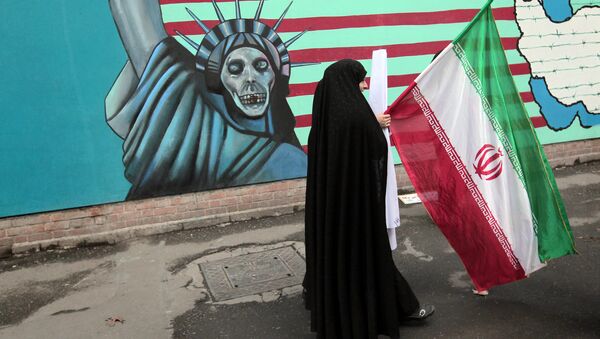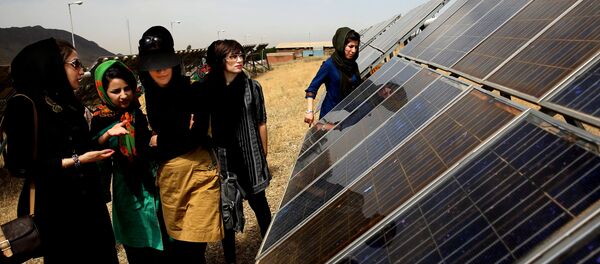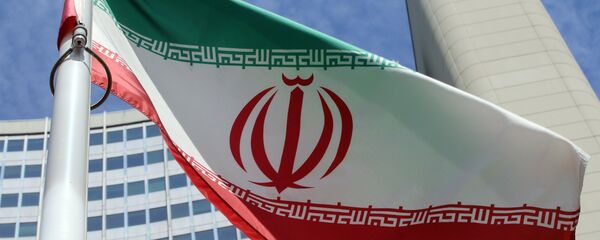MOSCOW (Sputnik) — The Joint Comprehensive Plan of Action (JCPOA), the so-called Iran nuclear deal, may be preserved even if the United States decides to withdraw, as the European Union has enough economic leverage to convince Tehran to comply, experts told Sputnik.
In July 2015, Iran signed the JCPOA with the P5+1 group of nations, a group comprised of the five permanent members of the UN Security Council — China, France, Russia, the United Kingdom, the United States — plus Germany. The nuclear deal came into force in January 2016, and provides for the gradual lifting of economic and diplomatic sanctions imposed on Tehran by Western countries in exchange for closing Iran's nuclear program.
JCPOA Possible if the US Pulls Out
The agreement may be preserved even without the United States as long as all the remaining parties provide enough support "to uphold the deal, and to continue complying, even against extremist opposition", according to Paul Ingram, the executive director of the British American Security Information Council think tank.
It means that the future of the deal depend on the reactions of the other parties since "they have to make up for the economic losses Iran may incur because of US defection, and they have to deal with the likely secondary sanctions the US may impose on those Western, Russian and Chinese companies which continue dealing with Iran against the US will."
Congress in Difficult Position
The US Congress is "in a really big bind" following Trump's announcement, since it may dislike the agreement, but cannot simply discard it, Ingram said. He explained that on the technical end the deal is functioning that is why the Congress cannot just label Iran "the bad guy" who does not comply with the provisions of the agreement and impose more sanctions. If it happens Congress "will be seen as the bad guys by everybody."
Ingram suggested that the US Congress still might end up imposing more sanctions on Iran, though described as punitive measures over human rights or regional security issues rather than over the nuclear deal itself.
Benefits to Iran
However, even if the US Congress adds new sanctions, Iran has a strong incentive to continue complying with the deal, Ingram noted.
"If Congress does slap more sanctions… the Iranians will have to consider whether they respond by partially withdrawing from the agreement or fully withdrawing from the agreement, saying they’ll come back to the agreement when the Americans come to their senses, or whether they say we’ll stick to the agreement. And I think there is a strong case for the Iranians to stick to the agreement because most of their commercial dealings are with the Europeans anyway," he said.
Europe's Reasons
The European Union appreciates the deal because it regards it as "a pillar of stability in the nuclear developments in the region and in the global non-proliferation regime," Mueller said. Moreover, Europe believes that the nuclear deal creates "a level playing field between the reasonable conservative and reform-minded parts of the Iranian elite and the more extreme pundits (the orthodox clergy and the Revolutionary Guards)," Mueller, who is also a current vice president of the EU Consortium for Non-Proliferation, said.
Mueller added that rising trade with Iran after the end of sanctions was a bonus, but not a decisive factor for Europe.
Ingram believes that Europe will "vigorously defend the JCPOA", although they would not want to ruin their relationship with Washington.
Europe's Options
Europe's high trade turnover with Iran can allow it to play an important role in preserving the nuclear deal, Ali Vaez, a senior Iran analyst with the International Crisis Group non-profit organization, told Sputnik.
The analyst added that some European banks and companies might prefer the larger US market to a smaller Iranian one, but "others would be more willing to take the risk if they feel shielded by their governments."







